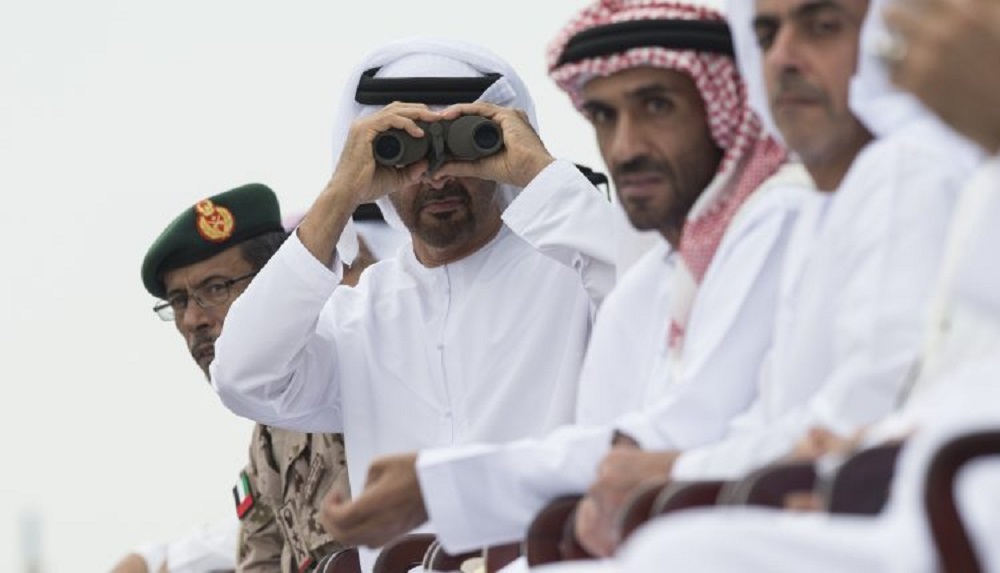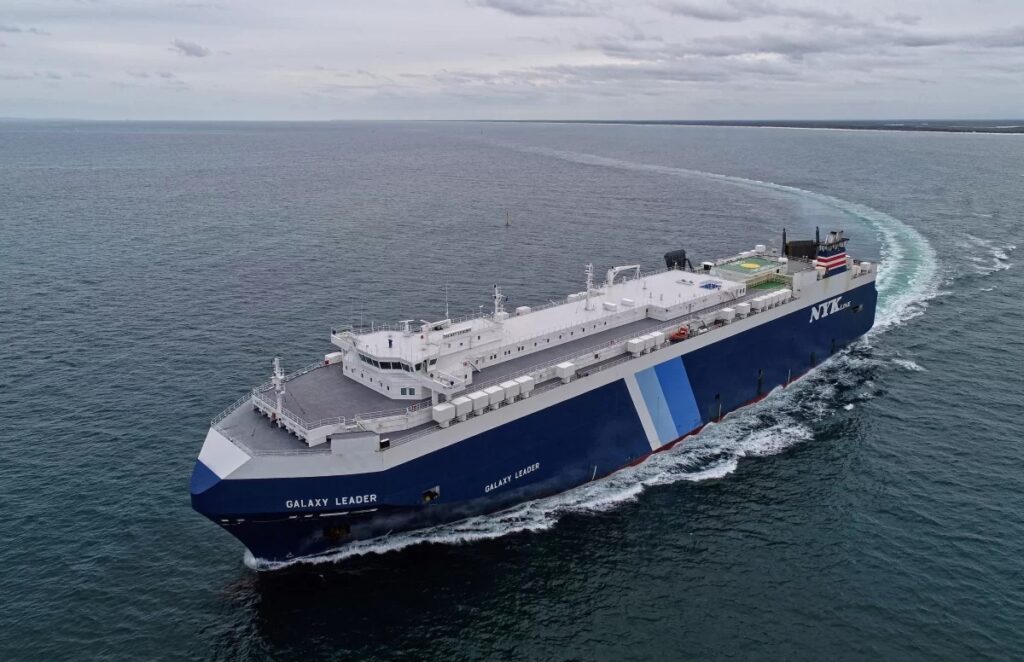UAE Deploys Israeli Radar in Somalia to Track Houthi Missiles Targeting Israel
Secret UAE-Israeli military collaboration expands into the Horn of Africa, raising geopolitical tensions and threatening regional stability.

Watan-Sources from inside the operations room files of the UAE National Security Advisor’s office, headed by Tahnoun bin Zayed, stated that the UAE regime has completed a secret operation to deploy the Israeli ELM-2084 radar system at Bosaso Airport in the Puntland region of northeastern Somalia.
According to the sources, this radar is one of the components of the Iron Dome system and is used to detect ballistic missiles, drones, and heavy artillery fire.
The radar was deployed in the Puntland region because it is a semi-autonomous area separate from central Somalia. An agreement was made with its local authorities through direct funding from Abu Dhabi and via Mohammed Dahlan to bypass the central government in Mogadishu.

UAE Facilitates Israeli Military Presence in Somaliland Amid Regional Tensions
This implies that the UAE regime is once again playing its usual role of fragmenting Somalia from within in exchange for establishing a military foothold.
Sources confirmed that the use of the radar is not for the protection of Abu Dhabi or the Gulf states, but rather to monitor strikes by the Houthi group (Ansar Allah) targeting Israel in the Red Sea and Gulf of Aden. This indicates that Abu Dhabi is conducting a monitoring and protection operation on behalf of Tel Aviv from African soil.
The sources also confirmed ongoing Emirati negotiations to open an Israeli base in Somaliland in exchange for promises to promote international recognition of the region. This suggests that the UAE is now acting as a financial and political mediator for the expansion of Israeli influence in the Horn of Africa.
Somaliland is also seen as part of former U.S. President Donald Trump’s proposed plan to relocate Gaza residents.
The same sources revealed that a military map is being engineered in favor of Israel, and the UAE is expanding its influence in Africa — this time not through reconstruction, aid, or development, but through direct breaches of African countries’ sovereignty under the guise of “protecting navigation.”
A few months ago, Israeli media confirmed that the UAE is financing Israel’s regional military expansion by helping build a military base in Somaliland.
UAE Facilitates Israeli Military Presence in Somaliland Amid Regional Tensions
Haaretz, an Israeli newspaper, published a report titled “All Eyes on Somaliland: The Small African State That Holds the Key to Israel’s War on Houthi Terrorism.”
The report stated that Israel, with Emirati support, aims to establish a military base in Somaliland to counter the Houthis in Yemen. This represents a strategic threat to Egypt and the future of international navigation through the Suez Canal.
Israeli and Western reports agree that the occupying state, which has been waging a genocidal war on Gaza since October 7, 2023, is considering building a military base in Somaliland to stop Houthi support for Palestinians.
This also involves monitoring the Bab al-Mandeb Strait at the southern entrance of the Red Sea. The Houthis control its eastern side and continue to launch hypersonic ballistic missiles and drones targeting Israeli sites, including Tel Aviv, despite the distance of approximately 2,000 kilometers.
The news site Arabi 21 reported that the Israeli base in Somaliland would come in exchange for Tel Aviv recognizing “Hargeisa” as the capital of the unrecognized state.
Reports also indicate that the UAE, which has had close political and economic ties with Egypt’s ruling regime since 2013 and has maintained a military and commercial base at Berbera port in Somaliland since 2017, is acting as a mediator between Israel and Somaliland and is also financing the construction of the base.
With discussions about the Israeli military base near the southwestern entrance of the Red Sea in Somaliland, there are also reports of Ethiopia actively seeking to establish a military base on the Red Sea via Somaliland. This raises concerns about escalating geopolitical risks at the southern entrance to the Red Sea, especially concerning Egyptian interests.

UAE and Israel Expand Military Presence in Somaliland Amid Rising Houthi Threats
In an analysis by Israeli writer Nadan Feldman, published by Haaretz on November 27, he discussed the threat of Houthi attacks on Israel, referencing an incident in which a $20,000 drone flew 2,000 km from Yemen, bypassed advanced Israeli air defenses, and hit Tel Aviv, killing one Israeli and injuring ten others on July 19.
He wrote that the Houthi attack, which “surprised Israeli defenses,” forced Israel to “find its own solutions” to the Yemeni threat, especially given the high cost of sending Israeli fighter jets on long missions to Yemen. He suggested that the answer lies in Somaliland — a “small, remote state, deprived of international recognition,” and lacking aid from the IMF and World Bank.
The writer claimed a resemblance between Israel and Somaliland, stating: “Both are small, weak democracies located in regions full of authoritarian regimes and deadly wars. Both suffer from sovereignty issues with the international community and have enemies seeking their destruction.”
The Middle East Monitor was the first to highlight Israel’s move toward Somaliland. On October 17, Turkish academic Ahmed Vefa Rende, of the Middle East Institute at Sakarya University, wrote about secret Israeli moves to build a military base there to attack and deter Houthi targets, in return for formal recognition of “Hargeisa” and financial investment.
He noted that the occupying state aims to establish secure zones for its strategic depth, such as Cyprus in the Mediterranean, and pointed to Somaliland’s importance in “fighting Iran’s proxies, especially the Houthis in Yemen.”
The site, which focuses on the Arab-Israeli war, cited diplomatic sources saying the UAE is mediating between the two sides, not only convincing Somaliland to allow the base but also pledging to fund it.
Abu Dhabi and Tel Aviv are united in their hostility toward the Houthi group in Yemen. Since normalizing relations in 2020 and forming commercial and economic agreements, the Houthis — who declared the closure of the Bab al-Mandeb Strait on December 14 — pose a threat to both the Israeli entity and the Emirati presence in southern Yemen.
According to Maariv, on July 29, the UAE and Israel agreed to establish a joint military and intelligence facility on Abd al-Kuri Island in the Socotra Archipelago in the Gulf of Aden, which the UAE has controlled since April 30, 2018.

The strong Emirati presence in Somaliland since 2017, set to last 7 years, includes Berbera Port and the airport of this strategic city on the Gulf of Aden, used by Emirati forces as a military base for operations in Yemen, in return for a $440 million investment in the port.
Somaliland lies on the Gulf of Aden, with a coastline of 460 miles near the Bab al-Mandeb Strait. It has a population of 6.2 million and is governed by the Isaaq clan. It declared independence from Mogadishu in 1991 but has failed for 33 years to gain international recognition — except for unofficial and commercial ties with Taiwan, Israel, the UAE, and Ethiopia.
The region holds significant geopolitical importance. Countries like the UAE, Ethiopia, and Israel are vying for a foothold there, while major powers like the U.S. and China see it as a prime location for military bases and naval stations due to its proximity to the southern entrance of the Red Sea, through which 12% of global trade passes annually, totaling about 790 billion euros.






